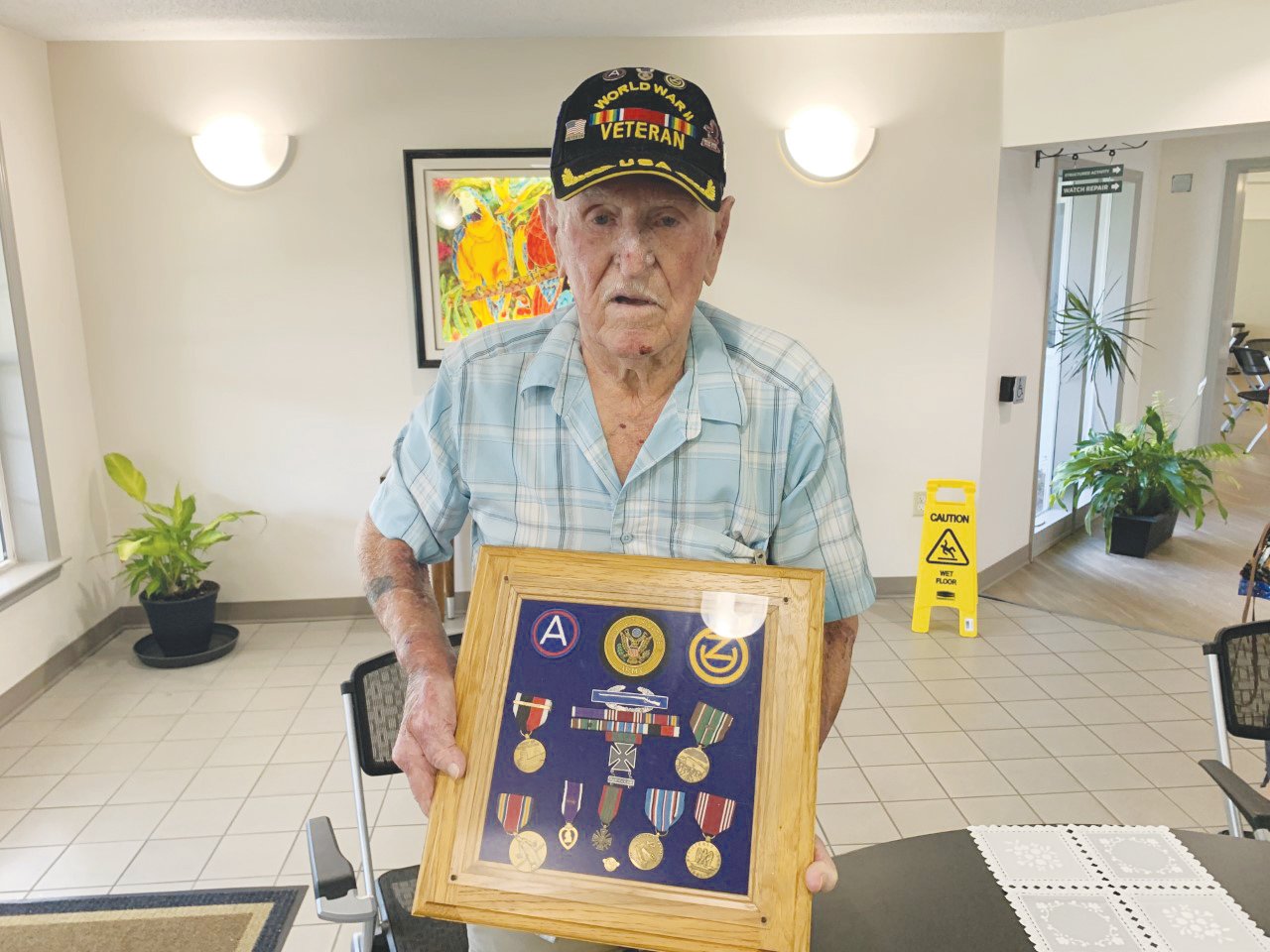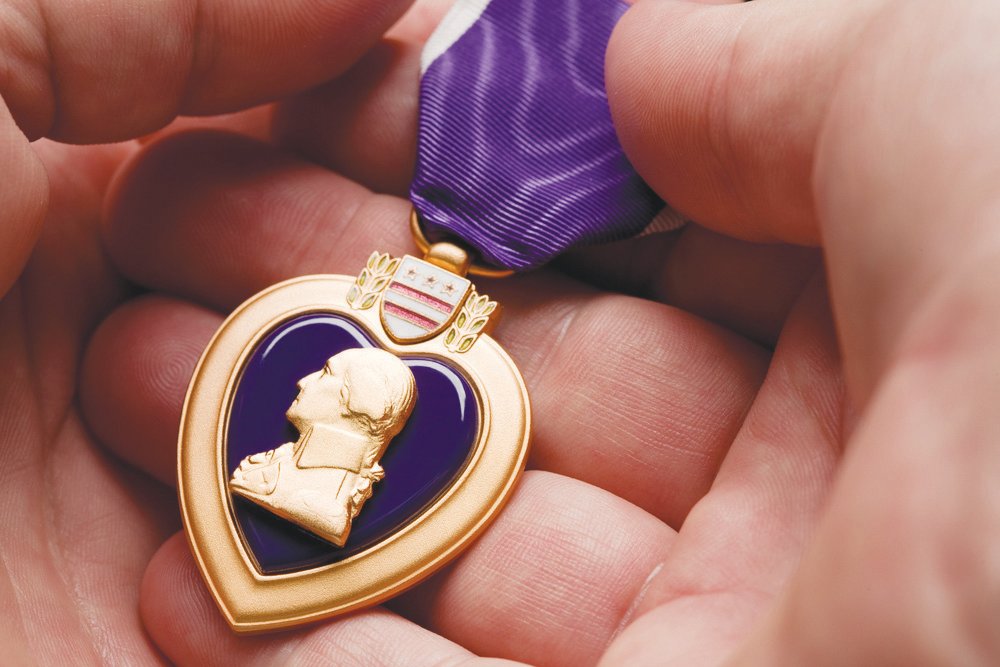WWII veteran, 96, shares compelling stories
ORANGE PARK – Primary sources of World War II – the oral history of those who fought, saw their comrades killed and came back to a changed nation – are rare now. Their stories can be …
This item is available in full to subscribers.
Attention subscribers
To continue reading, you will need to either log in to your subscriber account, or purchase a new subscription.
If you are a current print subscriber, you can set up a free website account and connect your subscription to it by clicking here.
If you are a digital subscriber with an active, online-only subscription then you already have an account here. Just reset your password if you've not yet logged in to your account on this new site.
Otherwise, click here to view your options for subscribing.
Please log in to continueDon't have an ID?Print subscribersIf you're a print subscriber, but do not yet have an online account, click here to create one. Non-subscribersClick here to see your options for subscribing. Single day passYou also have the option of purchasing 24 hours of access, for $1.00. Click here to purchase a single day pass. |
WWII veteran, 96, shares compelling stories
ORANGE PARK – Primary sources of World War II – the oral history of those who fought and saw their comrades killed before coming back to a changed nation – are rare now. Their stories can be side-splitting, poignant and thoroughly engrossing.
The Purple Heart is the oldest and one of the most recognizable military decorations a soldier can earn. Cliff Miller, a father of two, 60-year husband of Maxine, a contractor, a soldier and a saboteur, has two of them.
Entire lifetimes have come and gone since Nazi-led Germany began encroaching into Eastern Europe. The centennial of Pearl Harbor is 19 years away.
Miller, 96, stepped off a golf cart and into a meeting room last week not far from his Moosehaven residence. He carried a display case of medals his grandson organized for him. Other than the Purple Hearts, the medals are for his service in occupied Germany and France. He also pointed to a medal of good conduct.
“That one is kind of hard to believe,” he said with a laugh.
Miller’s story began with a busted lip and an expulsion. He hailed from Sterling Rock Falls, Illinois, which is 115 miles west of Chicago.
Eight decades removed from the incident, there’s a sense he’s told this story many times because it unfurls so fast.
“I’m taking a drink at a drinking fountain. A guy comes along and taps me on the back of the head into the spout. I cut my lip and bruised my tooth there,” Miller said while pointing to his tooth. “I turned around and I cleaned his clock. There’s an empty locker there, I put him in it, took a padlock and locked it. Somebody let him out right away. So, here comes the president of the school. ‘Miller, I’ve got to have a talk with you.’ … He says, ‘Don’t you know his brother is a deputy sheriff?’ Well, I wasn’t fighting his brother. … I didn’t hurt him that bad. He hurt me worse than I did (to him).”
At 17-and-a-half, Miller enlisted in the U.S. Army on Dec. 2, 1943. He trained and Camp Blanding and has visited the Clay County installation since.
He served under Gen. Omar Bradley, one of the most distinguished generals of the period. Bradley was known as a soldier’s general.
After Miller took shrapnel in the ankle in France, he soon returned to combat. An artillery strike near Bastogne killed two fellow soldiers and concussed Miller. He was flown to Paris presumed dead due to losing consciousness for three days.
“I woke up in Paris and there was a nurse working on me. I look at her, sit up in bed,” Miller recalls, “I go, ‘Who in the hell are you?’”
Losing an eardrum and most of his teeth, he stayed at the hospital for five weeks.
“I did not know they even picked me up,” he said.
Back from the hospital with the Allies pushing toward Berlin, Miller’s role was changed. His role was sabotaging enemy gas lines with five fellow soldiers, with a focus on providing coordinates to artillery. He recalled the travel, the waiting, the fear.
“The Germans are all over the place. A lot of people can’t imagine that,” Miller said. “We’d look for anything that looked like it had gas, or a pipe out there. If there were fumes going out of there ... we’d used to take a match and light it.”
Shuttling behind enemy lines required constant vigilance. Miller said his squad wore regular uniforms and had to listen for engines, voices or even the breaking of twigs in the forest. Anything that could give them away.
In an attempt to blow up a tank at a German outpost when his squad came across a lone 15-year-old German soldier standing watch. They captured the soldier and debated what to do with him. Miller said he argued to keep the guard alive and they subdued at the site after destroying his phone. He added that captured German soldiers toward the end of the war would ask the Americans what took them so long.
“I said, ‘Let’s leave him here.’ We talked to him. He could speak English,” Miller said. “He said, ‘I don’t want to be here, but I’ve got to be here.’ … With the Germans, you do what they tell you to do. We destroyed the telephones so he couldn’t call. … We took off.”
The troops didn’t carry large amounts of explosives, which meant they often had to call in support. The destruction of one bridge sticks in his mind.
“I’m getting on the phone with the artillery to destroy this bridge, and I give them the coordinates of where to hit. (The artillery officer) dropped the first one right in the middle of the bridge,” Miller said. “He said, ‘Who in the Hell are you? I want to meet you. I’ve never had anyone give me those kinds of coordinates before.’ I told him I was just a soldier, I guess. I would have liked to have met the guy.”
Toward the end of the war, the United States and the Soviet Union flanked Nazi Germany from the east and west to pacify Nazi's last stand in Berlin. Allied troops witnessed the remnants of the Holocaust. Miller doesn’t remember which of the death camps he saw, but the smells and the memories of the stacks of bodies stayed with him.
The experience made him sicker than he had ever been, he said.
“I never was that sick in my life,” Miller said. “That’s something you always remember.”
The war did bring Miller a touching reunion. He laughed whe describing army camp life and soldiers, specifically the British, who were constantly looking for alcohol. Miller had three brothers serve during the war. At one point, Miller recognized his brother Gordon’s tank division. Miller remembered playing cards in a tent when someone told him.
Miller asked Bradley if he could see Gordon and the siblings saw each other for the first time in a few years in a tearful, albeit brief reunion.
“(A soldier) says, ‘Your brother’s here!’” Miller said. “I said, ‘By God, he is in Patton's Army, isn’t he?”
Coming back wasn't easy. When the war was over, Miller returned to Illinois. He married on June 12, 1948. They had a boy and a girl. After a series of odd jobs, Miller built custom homes for more than 40 years.
“It wasn’t very good (at first),” Miller said. “I didn’t know what I was going to do. … I just broke out and started my own business.”
He later drove a shuttle, taking veterans to a local VA Hospital. He’s been at Moosehaven for about four years.
Miller put his hat back on and tucked his display case to his side. His handshake is still strong. Outside, his voice rose above the din of U.S. 17.
“What I did was nothing more than what millions of others did."











